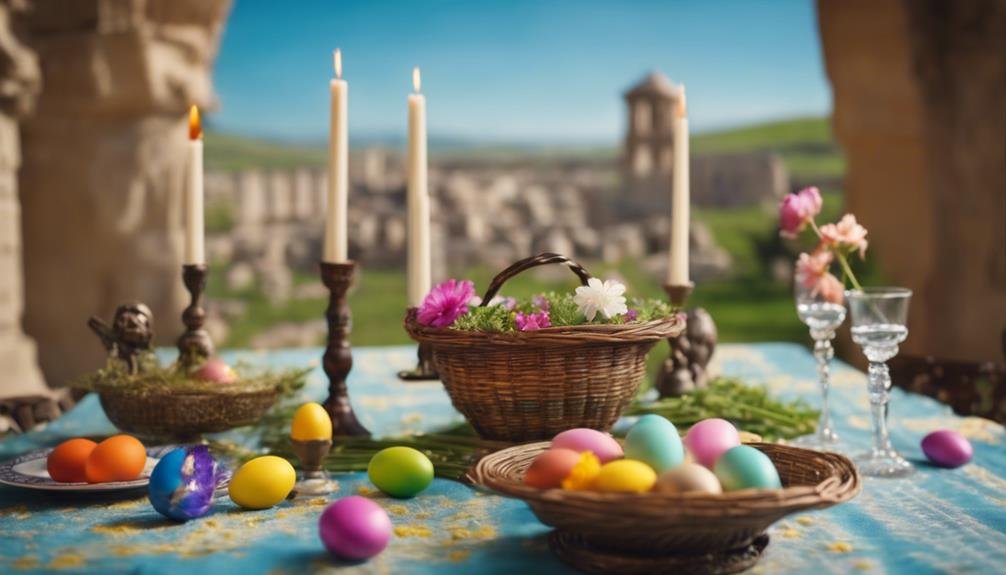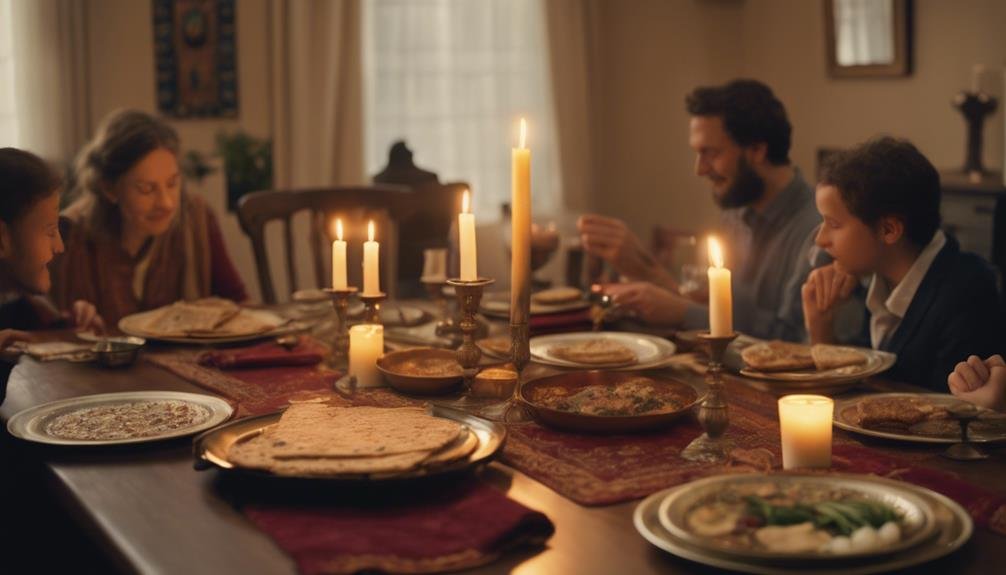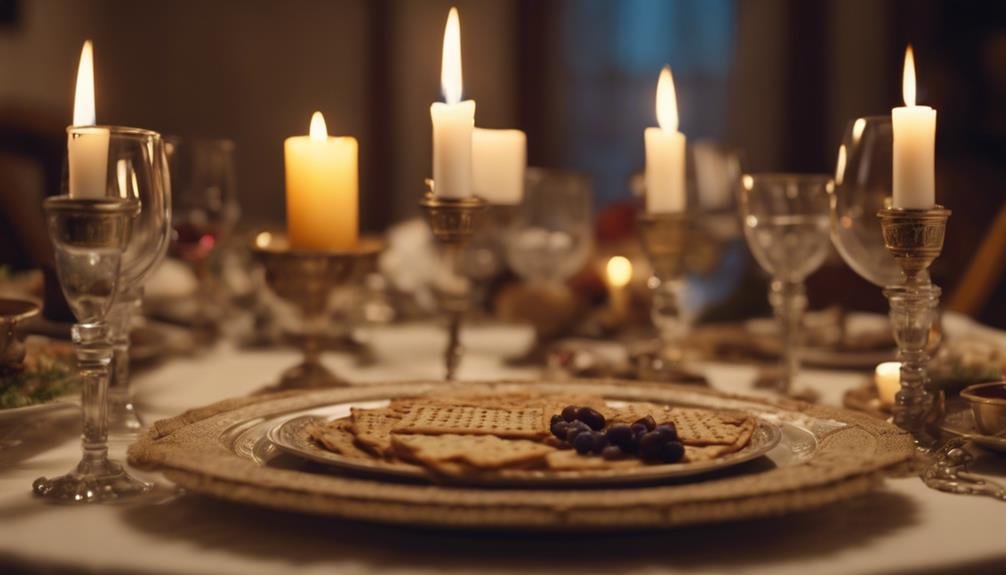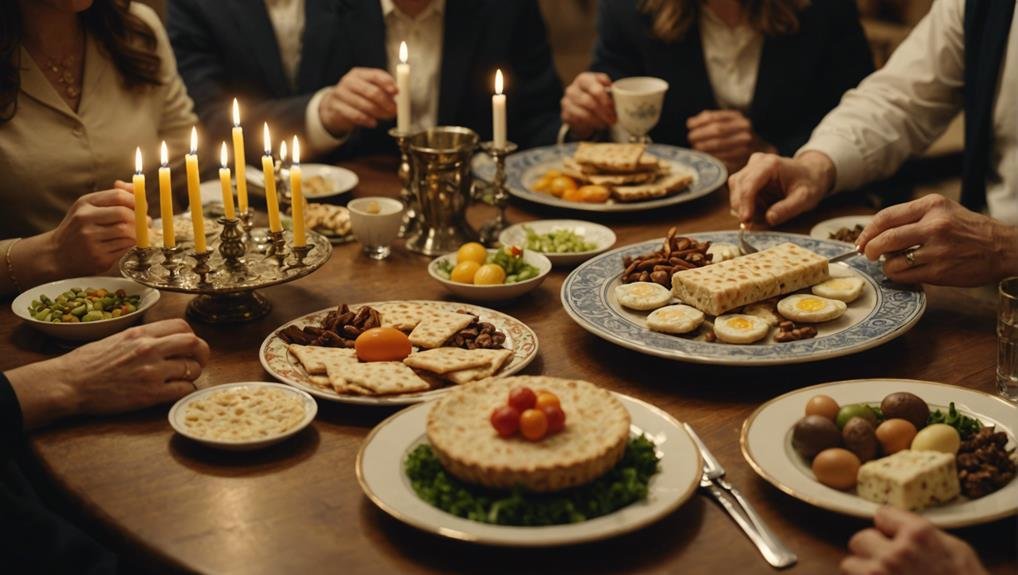You might wonder if Jews celebrate Easter, given its widespread observance in many cultures. However, you’ll find that Jews don’t traditionally celebrate Easter, as it’s a Christian holiday marking the resurrection of Jesus Christ.
Instead, Jews focus on Passover during this time, commemorating the Israelites’ liberation from Egyptian slavery. Both holidays often occur around the same period but hold vastly different meanings and customs.
Are you curious about what makes Passover unique and how it’s celebrated? Let’s explore the rich traditions and rituals that define this important Jewish festival.
Key Takeaways
- Jews do not celebrate Easter, as it is a Christian holiday focused on the resurrection of Jesus Christ.
- Jewish observances during the same period typically revolve around Passover, commemorating the Israelites’ liberation from Egyptian slavery.
- Passover and Easter have different theological foundations and cultural practices, reflecting distinct religious traditions.
- Some Messianic Jews may incorporate elements of both Passover and Easter, blending their Jewish and Christian beliefs.
- Traditional Jewish celebrations include the Seder meal and the recitation of the Haggadah, not Easter festivities.
Origins of Easter and Passover

Easter and Passover have rich histories rooted in redemption and divine intervention themes. Easter is a Christian festival celebrating Jesus’s resurrection, central to the Christian faith.
This event symbolizes God’s ultimate intervention in history, offering salvation to humanity. Every spring, Christians worldwide celebrate this miraculous event, marking it with special church services, feasts, and various traditions.
On the other hand, Passover is a major Jewish festival that commemorates the Israelites’ liberation from Egyptian slavery. This story is detailed in the Book of Exodus, specifically chapters 1-14, where God delivers the Israelites from Pharaoh’s oppression.
Jews celebrate Passover with a Seder meal, a ritualized family gathering featuring specific foods and prayers. The Seder is rich in symbolism, each element reminding participants of their ancestors’ struggles and God’s deliverance.
Though distinct in practice and origin, both festivals highlight the theme of divine intervention. For Christians, Easter signifies Jesus’s triumph over death, while for Jews, Passover marks their ancestors’ liberation. These springtime celebrations remind us of the power of faith and the enduring hope of redemption.
Key Differences Between Easter and Passover
While Easter and Passover celebrate themes of redemption, they differ considerably in their religious significance and practices. Easter, a Christian festival, celebrates the resurrection of Jesus Christ.
Passover, a major Jewish festival, commemorates the Israelites’ liberation from Egyptian bondage. These distinct origins shape how each holiday is observed.
During Passover, Jewish traditions focus on the Passover Seder, a ritualized family meal featuring specific foods and prayers that recount the Exodus story. Easter celebrations involve liturgical readings, special church services, and various cultural customs like egg hunts and festive meals.
To give you a clearer picture, here are some key differences:
- Focus: Easter centers on Jesus Christ’s resurrection, while Passover focuses on the Israelites’ escape from Egypt.
- Practices: The Passover Seder includes symbolic foods and storytelling, whereas Easter involves church services and often communal meals.
- Timing: Although both holidays sometimes overlap, they follow different calendars. Easter is based on the Gregorian calendar, and Passover follows the Hebrew calendar.
- Significance: Passover is one of Judaism’s three major pilgrimage festivals, requiring travel to Jerusalem, while the celebration of Easter is a cornerstone of the Christian faith, marking the culmination of Holy Week.
Understanding these differences helps us appreciate the unique ways each tradition celebrates redemption and divine intervention in history.
Jewish Passover Traditions

Passover traditions deeply root themselves in retelling the Israelites’ exodus from Egypt, creating a rich tapestry of rituals and customs. When you celebrate Passover, you engage in the Passover festival, known for its strict observance of the Feast of Unleavened Bread.
For eight days, Jews don’t celebrate with leavened bread, opting for matzah instead. This practice recalls the haste with which the Israelites fled Egypt, leaving no time for their bread to rise.
Central to Passover is the recitation of the Haggadah, a text that guides you through the exodus story, reinforcing the holiday’s historical and spiritual significance.
During Passover, you might observe rituals like Bikkurim, where the first fruits are offered, symbolizing gratitude and new beginnings.
While Jews celebrate Passover, they don’t celebrate His resurrection or recognize Jesus as the Messiah. Those who’ve converted to Christianity may celebrate Easter instead, focusing on Jesus as the Messiah and commemorating His resurrection.
Hence, the observance of Passover and Easter highlights distinct theological pathways, reflecting different belief systems and traditions within each faith.
The Seder Meal Explained
A central tradition of Passover, the Seder meal, is a ritualized family gathering that recounts the Israelites’ exodus from Egypt through symbolic foods and structured rituals. Unlike those who celebrate Easter, Jewish families come together during the Passover feast to participate in this meaningful ceremony.
The Seder meal’s structured nature is reflected in its very name, ‘Seder,’ which means ‘order’ in Hebrew. The evening follows a specific sequence, guided by the Haggadah, a text that outlines the prayers, songs, and readings for the occasion.
The Seder meal includes several symbolic foods, each representing different aspects of the exodus from Egypt:
- Matzah: Unleavened bread symbolizes the haste in which the Israelites left Egypt without time for their bread to rise.
- Bitter herbs (Maror): Representing the bitterness of slavery.
- Charoset: A sweet mixture symbolizing the mortar used by the Israelites in their forced labor.
- Four cups of wine: Representing the four expressions of deliverance promised by God.
During this family meal, participants take turns reading from the Haggadah, ensuring that everyone is engaged in recounting the story of liberation. This rich tradition underscores the importance of remembering and celebrating the historical journey of the Jewish people.
Celebrating Passover Today

Today, many Jewish families continue to cherish and uphold the traditions of Passover, ensuring the historical significance remains vibrant and meaningful.
Passover commemorates the Israelites’ liberation from slavery in Egypt and is marked by an eight-day observance filled with rituals and symbolic foods. The first day is particularly significant, featuring the Seder meal, where families gather to retell the Exodus story.
Specific foods like matzah and bitter herbs are consumed during the Seder, and prayers from the Haggadah are recited. As God commanded, this observance keeps the connection to their heritage alive.
While Jews don’t celebrate Easter, some Messianic Jews blend Passover elements with Yeshua’s resurrection, recognizing the overlap in the springtime observances.
| Element | Significance | Rituals Involved |
|---|---|---|
| Matzah | Represents the haste of departure | Eaten during Seder and meals |
| Bitter Herbs | Symbolizes the bitterness of slavery | Part of the Seder plate |
| Haggadah | Text retelling the Exodus story | Read during the Seder |
For Christians, Easter is about the resurrection of Yeshua, but for Jews, Passover is a time of historical reflection and gratitude. Each group’s observance is unique, highlighting different aspects of their faith traditions.
Conclusion
While you might notice Easter celebrations around you, as a Jew, your focus is on the rich traditions of Passover. You celebrate the Israelites’ liberation with meaningful rituals and the Seder meal, cherishing your heritage and faith.
By understanding the key differences between Easter and Passover, you appreciate the unique significance of your observances. So, embrace Passover with joy and pride, knowing it’s your special time to honor your history and beliefs.

